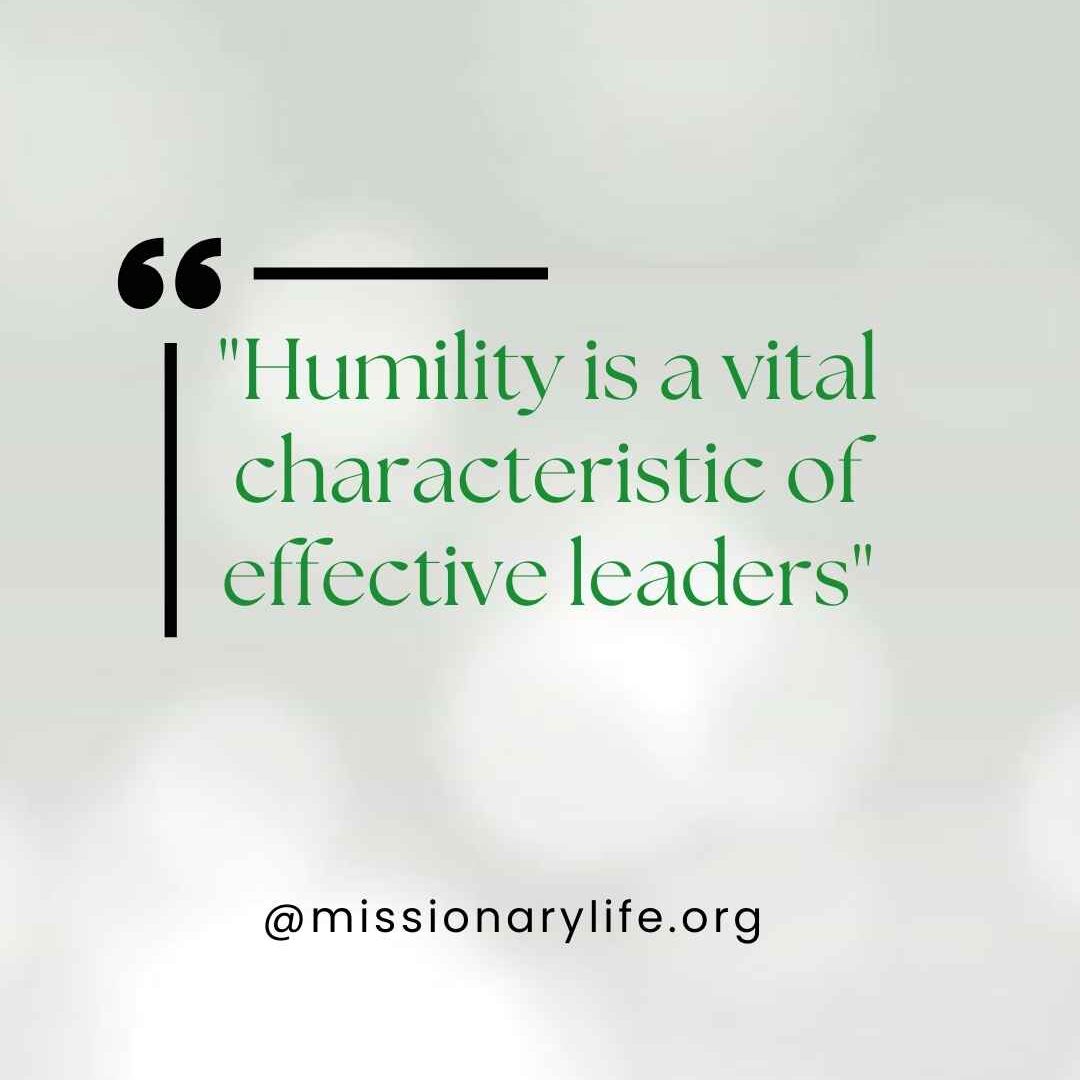The Surprising Quality that Takes You from Good to Great Leadership

Moses wrote of himself in the book of Numbers, “Moses was the most humble man on the face of the earth.” Has that ever struck you as strange? Humility is not an unwillingness to acknowledge one’s strengths. It is knowing both positive and negative areas, being honest about them, relaxed in who you are, and able to continually learn from others.
Humble leaders don’t pretend they are more than they are. Nor do they pretend they are less. They are real, genuine, honest, and constantly learning from those around them.
Good to Great
Some years ago, Jim Collins wrote a best selling book called Good to Great. He did extensive research on the most successful companies in the world. What were the characteristics of the type of leaders who took their companies from good companies to great ones?
At the top of the list was humility. It’s not surprising that his findings aligned with scripture. Even in the business world, humility is a vital characteristic of effective leaders.

This is counter to our natural way of thinking. We think of power, decision-making ability, and charisma as important in a leader. We can think of strength as being much more important than humility. This, however, is not what enables us to be fruitful in Kingdom work.
The most fruitful leaders in missions, those whom God uses most greatly, are those who embrace a life of genuine humility.
When I Expected a Rebuke
I was taking a class at Fuller Theological Seminary in Pasadena, California. My professor was Sherwood Lingenfelter, the Provost of the seminary. A brilliant man, author of several insightful books, and holding many degrees, I was excited to hear him. Taking notes and listening carefully to his lectures, I gained much from his content.
What I remember most, however, was an incident when he displayed incredible humility. This aspect of his character affected me far more than what he taught us.
There was a student in class who disagreed strongly with what Professor Lingenfelter was teaching. As is sometimes the case, instead of respectfully asking questions, my classmate forcefully asserted his opinion.
The humility with which my professor responded surprised me. I had been living in Asia for many years now. What my classmate was doing was not at all appropriate in the context I had grown accustomed to. In Asia, a student must never contradict and argue with a professor. This is dishonoring and shameful.

Even in my Western context, it seemed inappropriate. “Who did this fellow student think they were talking to him like that?” I thought. I expected Professor Lingenfelter to put him in his place. In some ways, I wanted him to. This student’s pride needed to be taken down a knotch.
That did not happen. Instead, Lingenfelter listened carefully. He gave him space to fully share his thoughts. My professor took notes and asked him a clarifying question. He thanked him for sharing his viewpoint.
No reaction. No defensiveness. Openness, willingness to listen, and learn from his student. Wow. Humility was on grand display. I remember it like it was yesterday. Since that day, I’ve tried to follow my professor as he followed Christ. I continue to pray that I will be as humble and open to learning from those who disagree with me as he was that day. It is not easy. I’m still working on it.
“Have this attitude in yourselves which was also in Christ Jesus,”
Philippians 2:5 NASB
5 Times Humility Is Needed
1. When Entering a New Cultural Context
Missionaries and ministers can unknowingly adopt a “Savior complex.” This is particularly an issue for short-term missionaries. Those who haven’t had the pain of cultural shock, language learning, and financial struggles take the edge off of pride. We go to the poor, the unreached, or whoever our mission is among, thinking we are there to “save them.” We have a message to teach these poor souls. Coming from a position of power, money, and knowledge, we try to “help.”
It smacks of colonialism and is the ugly side of short-term missions! Instead, we must go as learners. We go to listen, to observe, and to understand, before we bring our message. Humility demonstrates the gospel message more clearly than many of the things we do in His name.
Many are unwilling to invest a few hours to study, research, and learn about the people group they want to reach. We may have some short-lived impact. The humble worker who takes a posture of learning from the people will see the greatest long-term impact.
2. When Sharing the Gospel
We can forget that the message we share includes a cross. Jesus experienced the shame of crucifixion. He humbled himself to the point of death. We too must share His message from a place of humility and great love.
When you enter into debate and argument with unbelievers, you have already lost. Instead, ask genuine questions. Try to understand the viewpoint of those you are sharing with. Why do they believe what they do? Hold their religious viewpoints in high esteem. These things are precious to them and not to be attacked.
3. When Leading Cross-Culturally
We often allow our cultural biases to impact how we lead. In cross-cultural teams, the leader’s culture must not dominate. This takes intentionality. Is your culture time or event-oriented? Will you insist on team members arriving on time, because this is your cultural way of doing things? Do you elevate those who have the same cultural values and worldview as you do?
Humility allows others’ preferences to dominate, not one’s own.
4. When Someone Opposes You
This is tough. We tend to react when people disagree with us about something we are convinced of. Our insecurity and pride raise their ugly heads. Humility listens with an open heart. It seeks to understand and empathize with the person who disagrees.
5. When You Are Young and When You Are Old
Youthfulness carries a certain pride. Lack of experience and time to encounter failure can cause younger leaders to think they know better than older leaders around them. The same is true of those who are older. We can think we know far more than our younger colleagues. After all, we have been doing this work for far more years! New ideas are needed. Young leaders must be given space to contribute and innovate while showing humility and honor for those who have gone before them.
3 Things Humility Is Not
1. Humility is not letting people violate boundaries.
You have the right to humbly but firmly say no when healthy boundaries are crossed. We must learn to do this with grace. Humble leaders are not pushovers. Instead, they can set and defend healthy boundaries so their personal and family needs are protected.
2. Humility is not the absence of strong opinions.
Great leaders have strong opinions but they hold them with open hearts. They are willing to change their opinion if confronted with new information. They are not spineless, tossed to and fro by whoever they happen to be with. Instead, they form opinions, express them clearly, and adapt as they learn. It takes far greater humility to change your view and admit you were wrong, than to stick to your ill-informed viewpoint.
3. Humility is not pretending you are less valuable than you are.
Self-deprecation (putting yourself down) is not humility. Sometimes we do that to seek out compliments from others. “I’m not very good at this,” we say. We hope someone present will disagree with us and tell us how talented we are. This is not humility but insecurity. Know your value. Don’t be afraid to walk in it with your head held high. You are a child of the King.
Humility transforms a good leader into a great leader, a fruitful person into someone who sees unparalleled growth through their work.
What biblical or current example of a humble leader has impacted you most?
I’d love to hear about it in the comments below or on the Missionary Life Facebook Group.